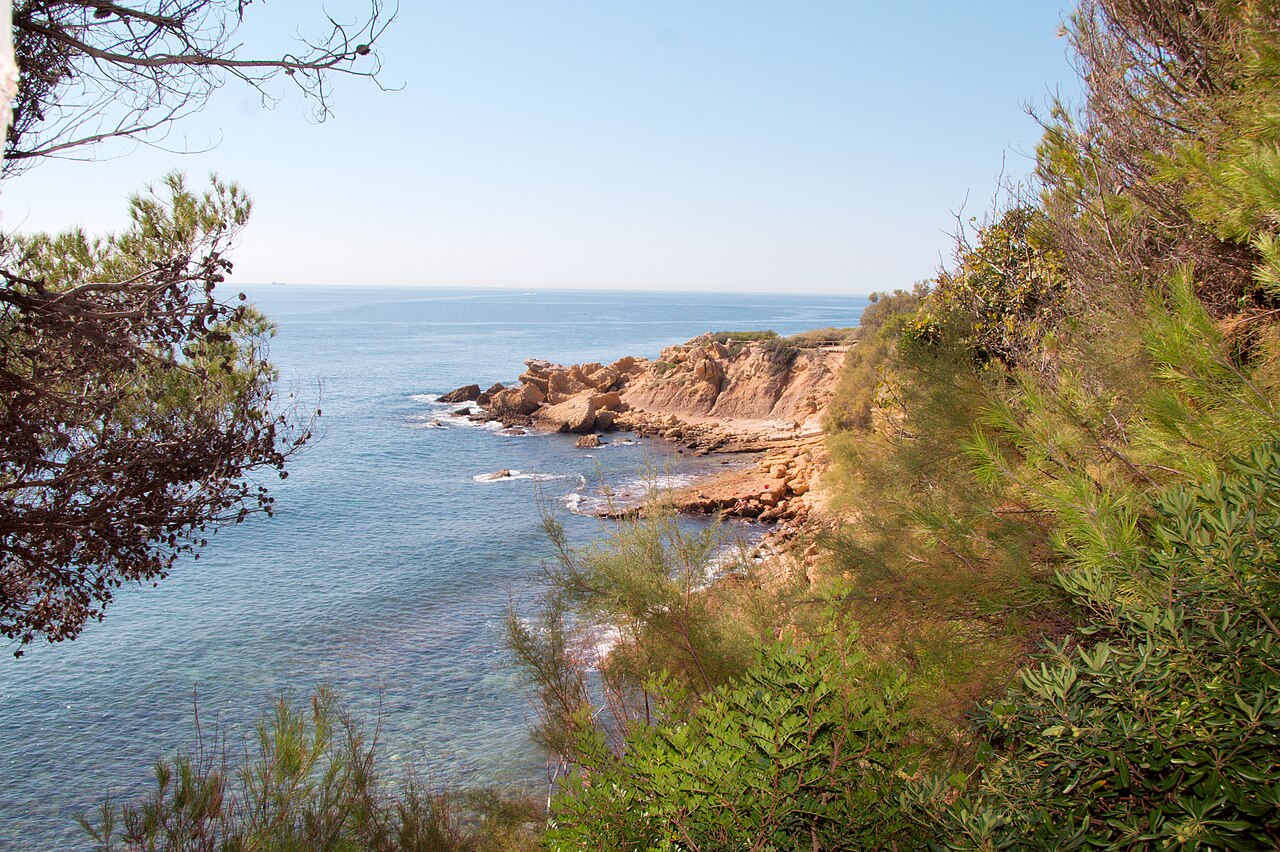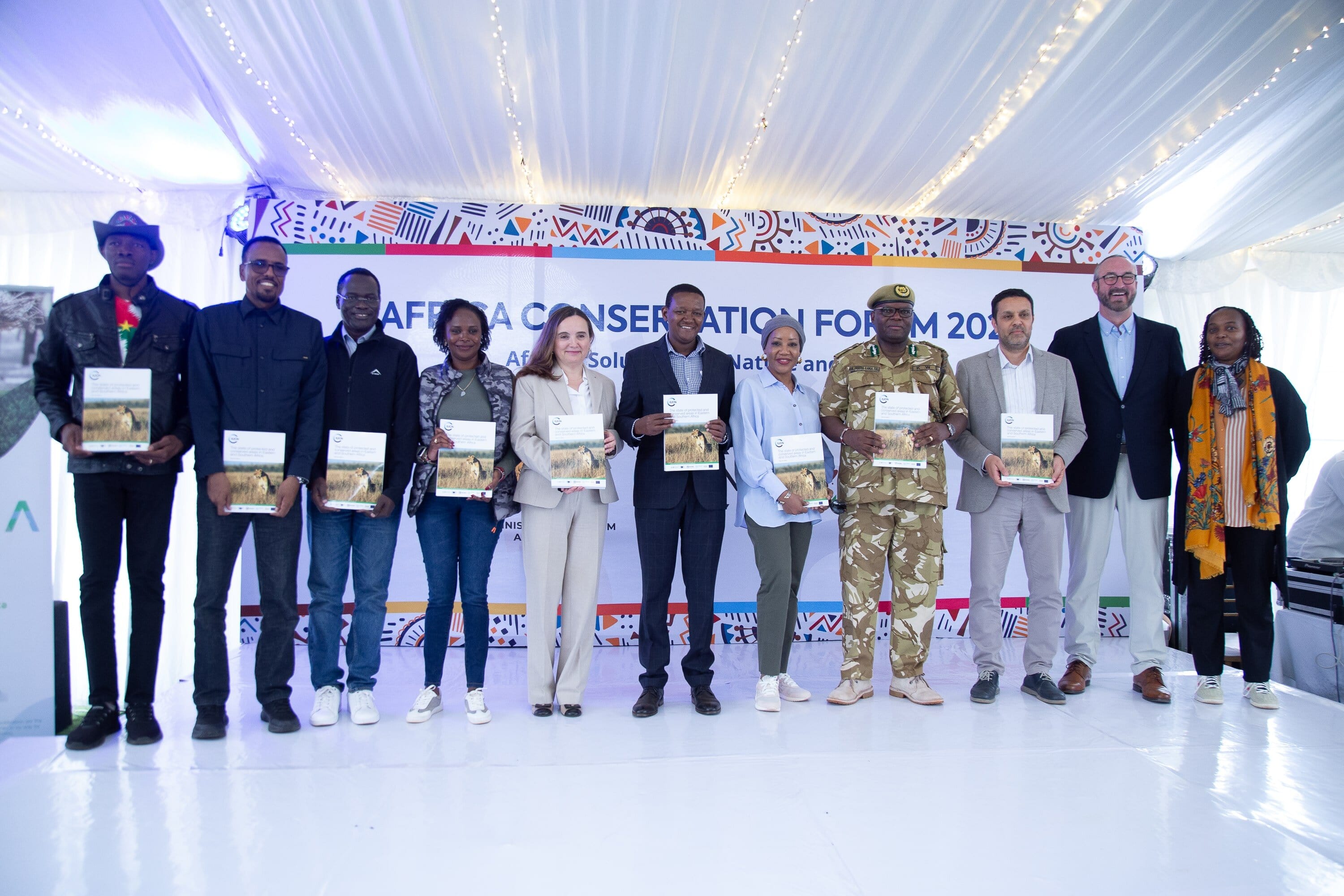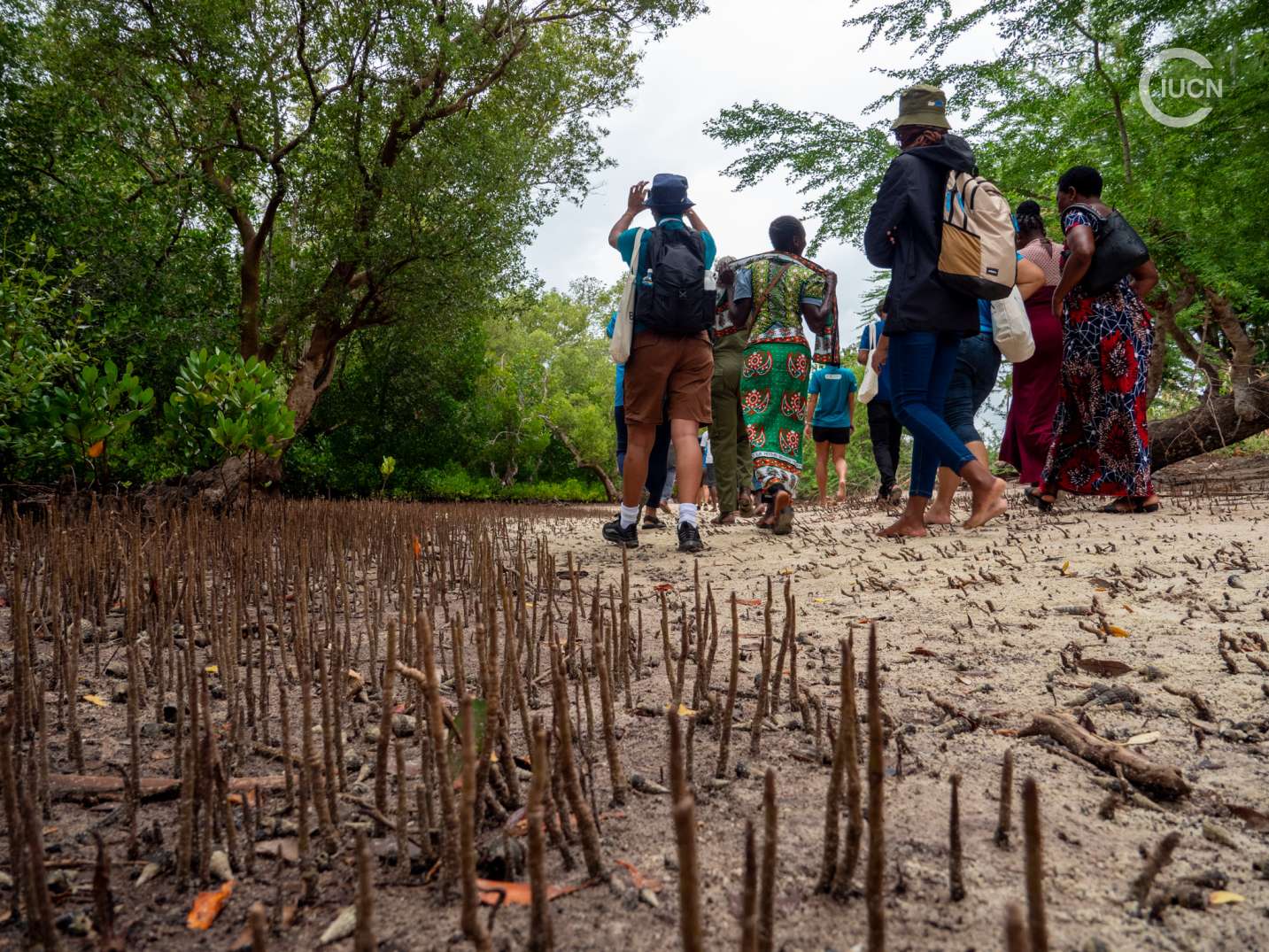Empowering Guardians: Women's Crucial Role in Conservation Efforts across the Pacific Islands – Insights from IUCN Oceania's Initiatives
As the world celebrates International Women's Day, it's crucial to recognize and applaud the indispensable role women play in conservation efforts, particularly in the unique context of the Pacific Islands. The intersection between nature and human well-being is profoundly felt in Small Island Developing States (SIDS), where the challenges of environmental degradation, economic vulnerabilities, and social disparities converge.
In the Pacific, women are the unsung heroes of conservation, serving as the custodians of local and indigenous knowledge that forms the bedrock of successful conservation endeavours. Despite societal norms and traditional protocols that may sometimes side-line them, women's influence on conservation outcomes is undeniable and transformative. Their participation in planning, implementation, and management of natural resources is essential for ensuring the sustainability of ecosystems and livelihoods.
In recent years, there has been a noticeable shift in the landscape of conservation efforts, particularly in the Pacific Island countries. More women are actively participating in the decision-making process, marking a significant step towards inclusivity and gender equality in environmental governance. While this journey is far from over, the strides made in integrating women into conservation initiatives signify a promising trend for the future.
The Convention on Biological Diversity (CBD) serves as a cornerstone for global biodiversity conservation efforts, with the participation of 14 Pacific Island countries highlighting a collective commitment to safeguarding our planet's rich biological heritage. Under the CBD's framework, there has been a concerted effort to mainstream gender perspectives into National Biodiversity Strategy and Action Plans (NBSAPs). This strategic approach recognizes the indispensable role of women in environmental stewardship and seeks to leverage their unique perspectives and expertise in shaping conservation policies and practices.
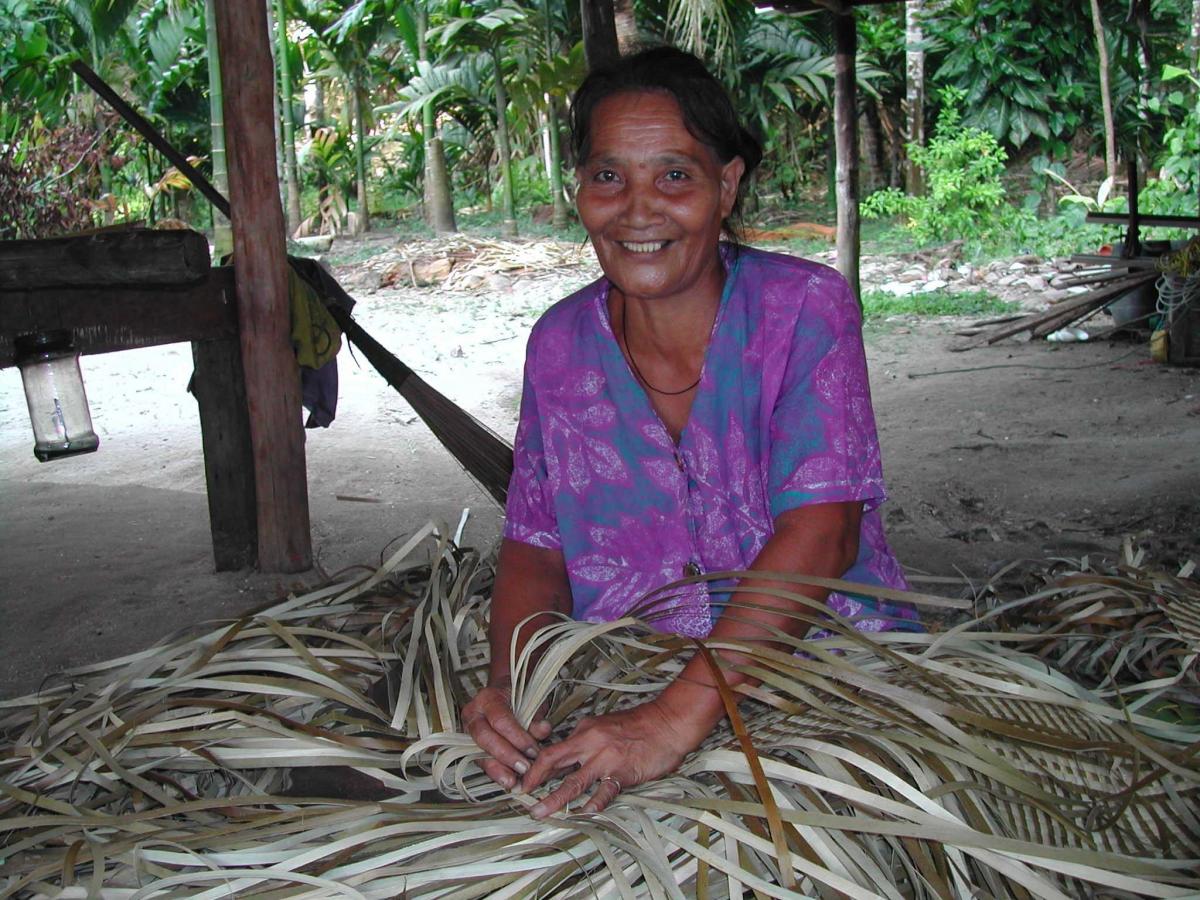 Traditional weaving, Arnavon Islands, Solomon Islands
Photo: Lea Scherl
Traditional weaving, Arnavon Islands, Solomon Islands
Photo: Lea Scherl
One notable outcome of this endeavour is the increased involvement of women in planning and implementing conservation initiatives. From the establishment of Locally Managed Marine Areas (LMMA) to the empowerment of women in fisheries management, success stories abound, showcasing the invaluable contributions of women to conservation outcomes. In the past decade, we have witnessed a remarkable transformation as women have transitioned from being passive participants to active leaders and decision-makers in the realm of conservation.
The success of initiatives such as LMMA and Women in Fisheries underscores the effectiveness of integrating gender perspectives into conservation strategies. By harnessing the knowledge, skills, and experiences of women, these initiatives have not only enhanced the sustainability of marine ecosystems but have also fostered greater social inclusion and empowerment within local communities. Women, who were once marginalized from decision-making processes, are now playing pivotal roles in shaping the future of conservation efforts in the Pacific Island countries.
However, despite the progress made, challenges persist on the path to gender equality in conservation. Deep-rooted gender norms and cultural biases continue to hinder women's full participation and leadership in environmental governance. Addressing these systemic barriers requires a multifaceted approach that encompasses policy reforms, capacity-building initiatives, and community engagement efforts aimed at promoting gender equity and social justice.
Furthermore, sustaining the momentum of women's empowerment in conservation necessitates ongoing support and investment from governments, civil society organizations, and the international community. By prioritizing gender-responsive approaches and creating enabling environments for women to thrive, we can unlock the full potential of women as agents of change in biodiversity conservation and sustainable development.
Recognizing the importance of inclusivity in conservation, organizations like the International Union for Conservation of Nature (IUCN) Oceania work tirelessly to empower women and integrate their perspectives into conservation initiatives. Through partnerships with government and non-governmental agencies, IUCN Oceania ensures that women are equal partners in decision-making processes, drawing upon their diverse roles and expertise in fields such as agriculture, forestry, fisheries, and tourism.
At the forefront of these efforts is the Biodiversity and Protected Areas Management Programme (BIOPAMA), a €60 million initiative of the European Union (EU) and the Organisation of African, Caribbean and Pacific States (OACPS). Led by IUCN's Oceania Regional Office in collaboration with the European Commission Joint Research Centre (JRC) and the Secretariat of the Pacific Regional Environment Programme (SPREP), BIOPAMA aims to enhance the conservation and sustainable use of natural resources in the Pacific.
Through grants, training, and capacity-building activities, BIOPAMA supports communities and governments in improving the effectiveness of marine and terrestrial protected areas. Women's involvement in these initiatives is multifaceted, reflecting their diverse roles as food gatherers, decision-makers, homemakers, and income earners. Their intimate knowledge of nature and innovative solutions are invaluable assets in tackling the complex challenges of environmental sustainability.
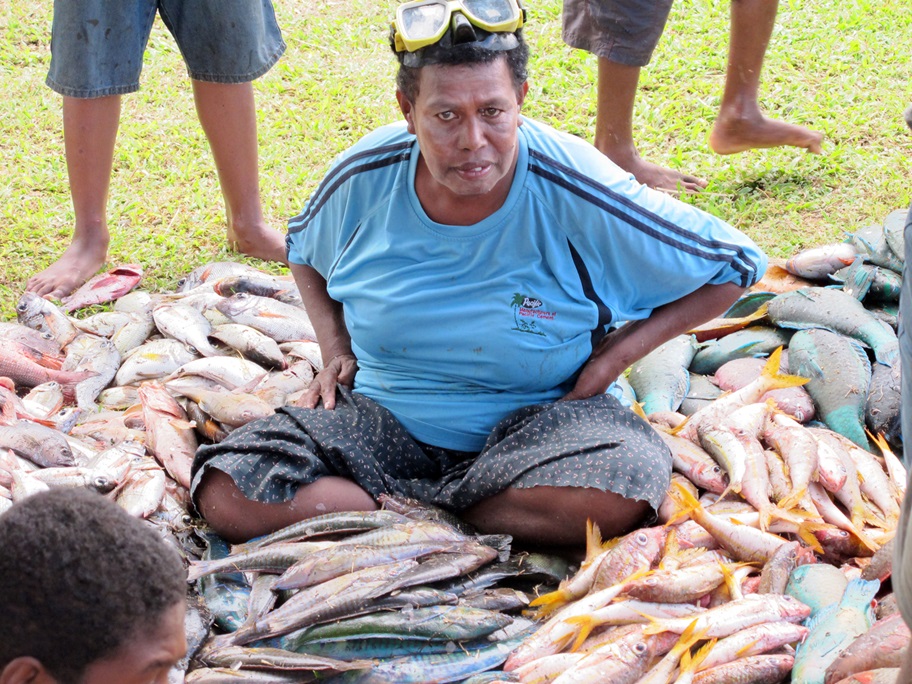 Photo: Fish harvest at Nakodu village in Koro, Fiji. PC Stacy Jupiter
Photo: Fish harvest at Nakodu village in Koro, Fiji. PC Stacy Jupiter
On this International Women's Day, let us celebrate and amplify the voices of women in conservation, recognizing their pivotal role in safeguarding the natural heritage of the Pacific for generations to come. Together, we can build a more equitable and resilient future, where women stand at the forefront of environmental stewardship and community empowerment.
In conclusion the increasing participation of women in decision-making processes within the conservation sector marks a significant milestone in the journey towards gender equality and environmental sustainability. Through concerted efforts to mainstream gender perspectives and empower women as leaders and changemakers, we can forge a more inclusive and resilient future for both people and the planet. As we continue to strive for progress, let us recognize and celebrate the invaluable contributions of women in shaping the course of conservation efforts in the Pacific Island countries and beyond.
______________________________________
Rahul Chand serves as the Regional Programme Coordinator for Protected and Conserved Areas in Oceania within the IUCN. With expertise in biodiversity conservation, planning, and policy and project implementation, he has over 15 years of dedicated involvement in governmental and non-governmental sectors at both regional and national levels. His focus revolves around effectively implementing biodiversity strategies and action plans.
 Photo: Rahul Chand
Photo: Rahul Chand
Disclaimer
Opinions expressed in posts featured on any Crossroads or other blogs and in related comments are those of the authors and do not necessarily reflect the opinions of IUCN or a consensus of its Member organisations.
IUCN moderates comments and reserves the right to remove posts that are deemed inappropriate, commercial in nature or unrelated to blog posts.
